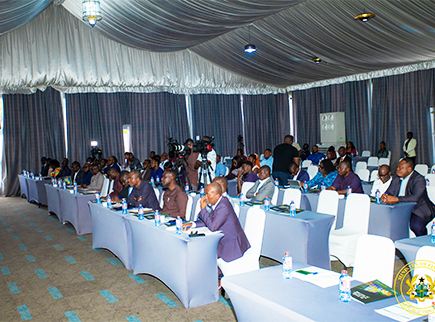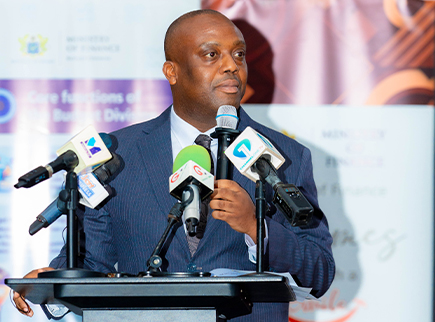The Ministry of Finance has engaged stakeholders to solicit input for the 2026 national budget.
The two-day consultation involved representatives from banking and non-banking financial institutions, academia, think tanks, and professional bodies, in fulfilment of Section 21 of the Public Financial Management Act.
The Act mandates that the finance minister prepares the budget in consultation with relevant stakeholders.
Mr Thomas Nyarko Ampem, Deputy Minister for Finance, said the engagement was intended to ensure that “we can all own the budget.”
“We recognise the fact that it is important that we engage all relevant stakeholders so that the final budget that will be presented to Parliament will be something that we will all be proud of [and] be implemented well to push the economy of this country forward,” he said.
The 2026 budget, expected to be presented to Parliament in November 2025, will focus heavily on job creation and private sector-led growth.

Mr Ampem noted that insights from the consultations would guide policy design for growth, equity, and resilience, as well as inform resource allocation and priorities across sectors.
He highlighted the impact of similar engagements on the 2025 budget, including consultations with market women, traders, industry players, and academics, which contributed to the economic gains currently being observed.
The budget coincides with a primary balance surplus of 1.4 per cent of Gross Domestic Product (GDP), a fiscal deficit of 1.5 per cent, and public debt at 46.8 per cent as of August 2025.
Mr Ampem also cited a drop in inflation to 9.4 per cent, a 1,300 basis point fall in treasury bill interest rates, significant appreciation of the Ghanaian currency, and improved credit ratings.
He explained that the 2026 budget would prioritise sustainable economic stabilisation, fiscal discipline, infrastructure and social development, social protection, education, youth empowerment, and employment creation.
Specific commitments include more than doubling road infrastructure allocation, with over 60 road projects already underway, alongside increased funding for healthcare, education, and support for vulnerable groups.
“These achievements are not ends in themselves but foundations for sustained recovery and shared prosperity,” the Deputy Minister said.
“Going forward, the government remains steadfast in sustaining the momentum of economic recovery and, in building a resilient economy that delivers opportunity for all Ghanaians,” he stated.


https://shorturl.fm/9hIF7